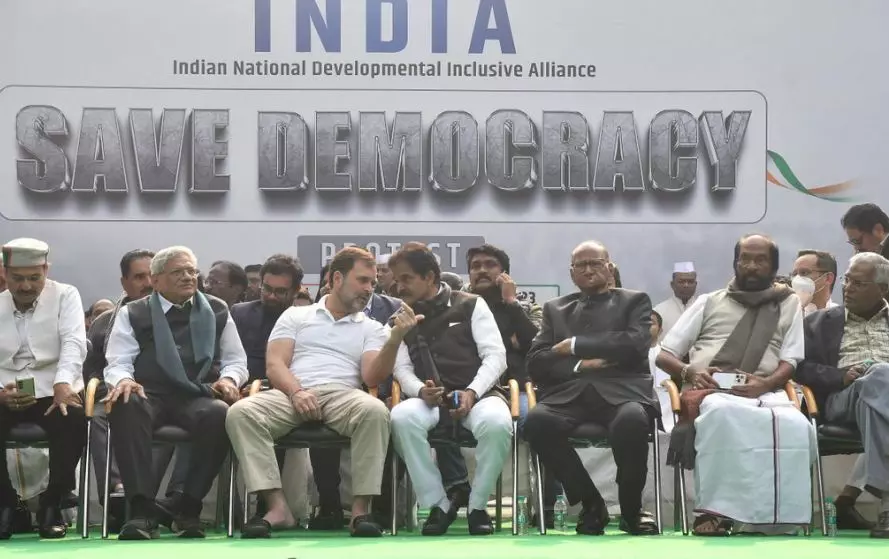DC Edit | Congress mainly to blame for INDIA crisis
The INDIA bloc is struggling due to Congress' aspirations and internal disagreements among regional allies, leading to calls for disbandment

The INDIA bloc is facing a threat of extinction because it may have outlived its usefulness. The alliance formed with the sole purpose of defeating the BJP in the Lok Sabha elections and continued at least into the Maharashtra elections where reasons for disbanding the alliance came aplenty in the results. Most of the problem is of the bloc’s own making as its big component of regional parties was bound to go for the delete button after the general elections.
The Congress Party, which sees itself as the natural leader of the group as the only national party among a bunch of units of regional satraps, was bound to struggle to retain its hold. It was never in such a strong position as to dictate what the ideological thrust or a common minimum programme should be. It was always unlikely that any of the regional parties would wish to encourage the Congress as a national political force beyond its current spheres of influence in some states.
The very idea of INDIA is being challenged now by at least four major allies in the SP, TMC, the Shiv Sena (UBT) and NC. All of them may have seen the Congress move to contest the Delhi Assembly elections as not being in conformity with the idea of a united Opposition. Given the AAP’s strength in Delhi where it has ruled for 10 years and is seeking a third term, it was a misadventure on the part of the Congress to have put its oar in the water to test the tide of public opinion.
The principal problem with the basic construct of the logic of a united Opposition was that it was solely to bring the BJP down rather than allegiance to any broader principles of social justice or saving the economy programme. There were few meetings held beyond tackling the compulsions of seat arrangements in polls in most of which the Congress was only a junior partner. Where the Congress had a strong presence, like in Haryana, it saw no need to negotiate with seats for seat sharing.
The Congress had more gains from the Lok Sabha polls than its allies as it also landed the post of Leader of the Opposition in Parliament after gaining seats from below 54 to near 100. It is clear enough then that leaders like Omar Abdullah and Tejashwi Yadav, who see the Congress as a junior ally in their states, are calling for disbanding the INDIA bloc or reviving it only before the next general elections in 2029.
Stung by being abandoned by allies ahead of the Delhi Assembly polls in which it is expected to finish behind the AAP and the BJP, which are the principal contestants in the national capital now, the Congress might have to reconcile to a lesser role, not only in an essentially opportunistic alliance but also in a consensus approach to the bigger national issues that are bound to come up in Parliament.
The differences that cropped up in the bloc over whether to let Parliament function, the question of criticism of EVMs rather than accepting poll results and latent resentment against the role of Rahul Gandhi as LoP have gone to show how quickly cracks can develop in such an alliance that was based primarily on electoral aspirations. Congress’ ambition to seek a higher place as a national party by contesting the Delhi elections has led to this existential crisis in the INDIA bloc.

